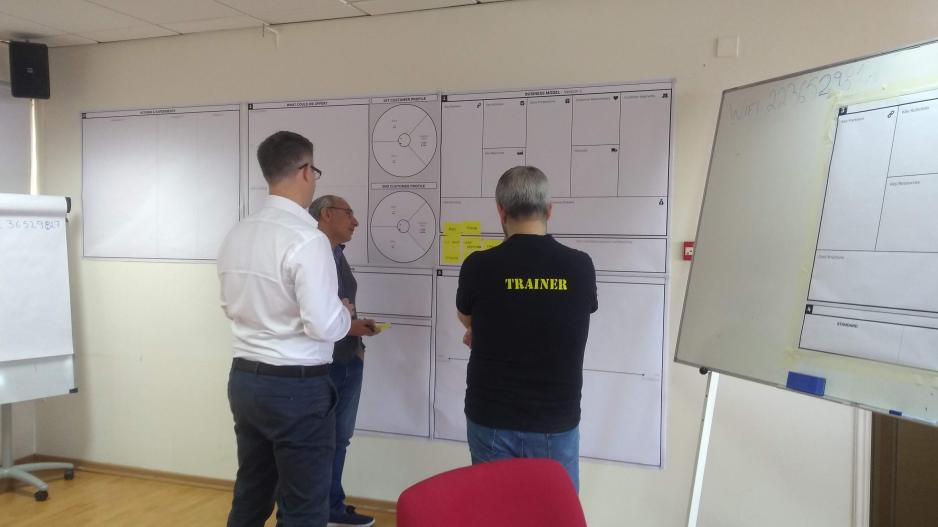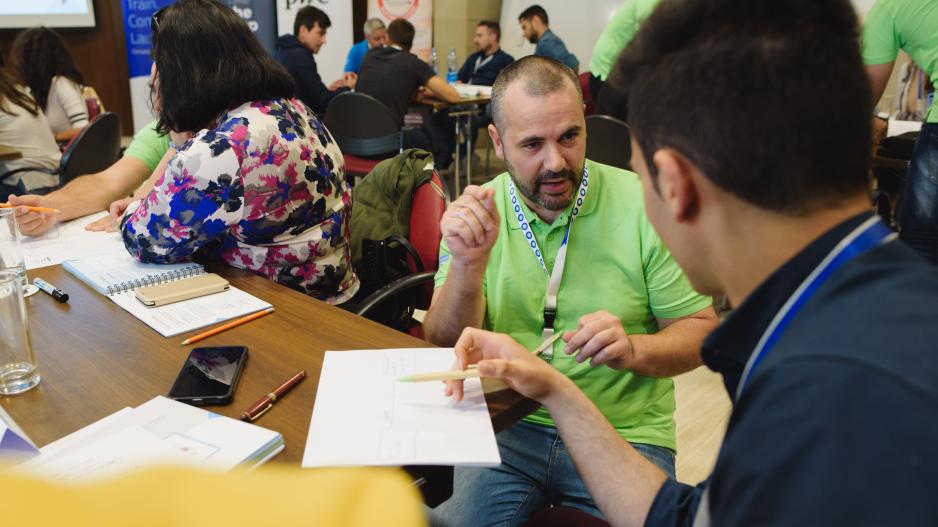3 Reasons Start-ups Fail
Practical Tips for Entrepreneurs to Avoid Common Pitfalls
All entrepreneurs begin their journey with the dream of becoming the next big thing and disrupting the industry, but reality often hits sooner and harder than expected!
In the world of entrepreneurship, the road from ideation to success is filled with numerous challenges and obstacles. Despite the appealing nature of innovation and the alluring idea of disrupting industries, many start-ups struggle and fail to reach their intended goals. While each case is unique, having worked with many start-ups throughout the years, we have identified some recurring patterns as to why many ventures struggle to hit their stride and ultimately meet their demise. Among these patterns, three main reasons stand out: Poor communication and misalignment among Founders, incomplete customer discovery and market analysis, and limited access to funds.
In this article we will explore in detail the three reasons one-by-one, explain how and why they can lead to failure and suggest ways that can help a start-up achieve the highly longed for “success story”:
Behind every start-up there should be a passionate team driven by the same goals and visions. However, this is not always the case. Misaligned goals and interpersonal disputes can hinder the future progress of any start-up.
A lack of clear communication often leads to misunderstandings among team members, which, ultimately, can be found and seen through every aspect of the start-up, affecting the productivity and overall performance of the venture. Without a common alignment of the Founders’ goals and vision, the start-up is left vulnerable.
A lack of clear communication often leads to misunderstandings among team members
One of the first exercises we do with our start-ups is to have them write down their individual goals and dreams for their venture and then ask them to reveal and discuss them with each other. By doing so, Founders are forced to have the “ugly”, uncomfortable but unavoidable discussion early on, thus ensuring that they will start building their start-up on strong foundations.
Entrepreneurs often end up developing a product or a service without truly identifying their target market and without thoroughly understanding the needs and 'pains' of their customers. Incomplete and wrong customer discovery and market analysis will result in a gap between the solution provided by the start-up and the actual demands of the market.
Without a deep and clear understanding of what the customer needs are and how to address them, start-ups often develop products or services that fail to gain traction or resonate with their intended audience. Failure to properly understand and identify the market needs and inadequate market analysis leaves start-ups vulnerable, making it challenging to differentiate themselves from already existing solutions.
Asking the right questions will help you obtain the right insights that could help you get your business of the ground
In order to properly conduct a market analysis and correctly identify and understand who your customer is, it is really important not only to get out of the building and talk with as many potential customers as possible, but also to ask them the right questions. Asking the wrong questions will, with mathematical certainty, always lead down the wrong path and provide you with false and useless information. Asking the right questions will help you obtain the right insights that could help you get your business of the ground.
Access to capital is often cited as a pivotal factor when it comes to the survival of any entrepreneurial venture. Limited access to funds constrains a start-ups' ability to invest in product development, marketing, talent recruitment, and operational expenses.
Securing funding from investors, banks, or other funding bodies is a formidable challenge, especially in Cyprus where start-ups are faced with the additional challenge of a limited pool of funding opportunities, and particularly for early-stage start-ups, who without a proven and solid track record, are struggling to attract the investors' attention.
For start-ups to navigate the complex landscape of fundraising strategically they need to have access to investment networks, mentors, and resources to optimise their fundraising efforts.
Addressing these challenges requires proactive measures and a continuous commitment to learning, evolving and adapting. By acknowledging these critical factors and taking proactive steps to mitigate risks, entrepreneurs can enhance their chances of building successful and sustainable ventures in the ever increasing competitive landscape.

At Chrysalis LEAP we make every possible effort to support all start-ups coming our way through training, mentoring and access to our network of collaborators and investors to help them increase their chances of success.
Through our entrepreneurship programmes, we ensure that start-ups identify and address these challenges early on and help them build their venture on strong foundations. The start-ups go through rigorous training, where they work with expert trainers and get the necessary feedback in order to develop their idea into a profitable business.
So, while success ultimately depends on numerous factors and no amount of preparation can guarantee the success of a start-up, investing in the right training and mentorship decreases the risk of failure and guides ventures helping them avoid common pitfalls. Additionally, guidance from experienced mentors enables start-ups to be prepared to tackle any obstacles and make informed decisions.







